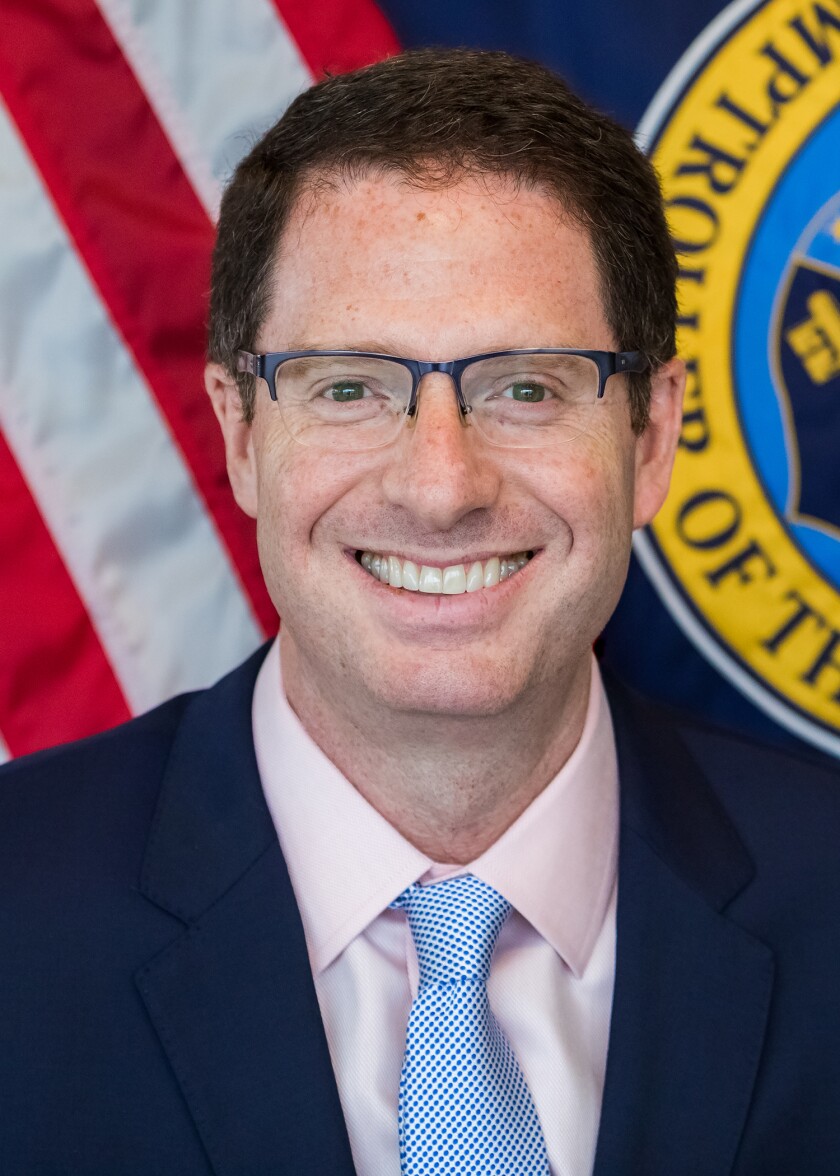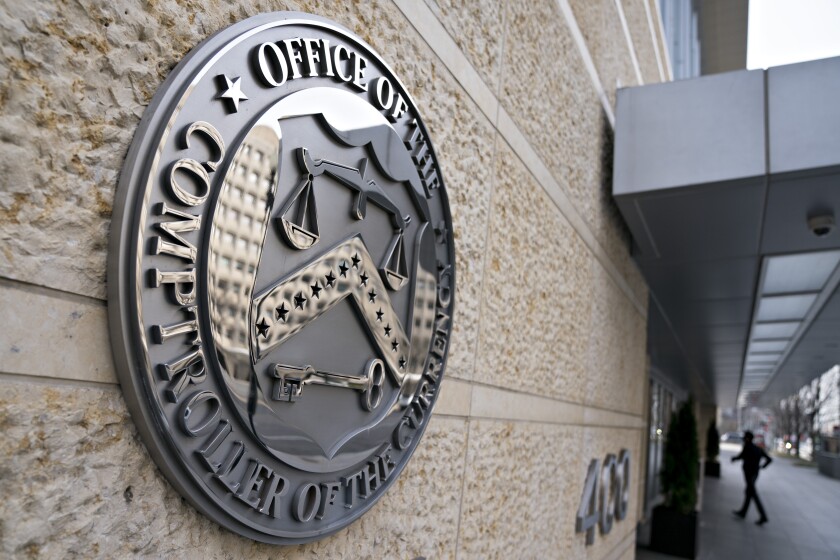The coronavirus pandemic has exposed weaknesses even at well-established fintechs. They could become more resilient by partnering with traditional financial institutions.
While they are not dramatically opposed, Jelena McWilliams and Brian Brooks have articulated their own ideas on postal banking and the use of artificial intelligence in lending.
The Office of the Comptroller of the Currency will use year-end 2019 asset totals in its calculating its next assessment, saying national banks "should not be penalized" for adding emergency loans to their books during the pandemic.
After three months of supervising national banks remotely, examiners will soon resume visiting them in person and working in regional offices, says acting Comptroller of the Currency Brian Brooks.
The acting head of the agency says it cannot continue relying on web-based exams put in place during the coronavirus and will start sending staff into banks.
An interagency notice meant to encourage lenders to offer small consumer loans also provides federal agencies too much say on what constitutes “reasonable” pricing.
If the agency hadn’t revised the 1977 law now, nothing would be done for communities in need that are struggling even more in the coronavirus pandemic, writes Faith Bautista, CEO of the National Diversity Coalition.
Comptroller of the Currency Joseph Otting says the revised Community Reinvestment Act will provide more credit access to communities in need and won't, as some had feared, create new thresholds for grading banks.
Operation HOPE Chief Executive John Hope Bryant talks about how the Community Reinvestment Act influenced him at the age of 9 and eventually led to the founding of his nonprofit, which works with banks to help communities in need. But he says the 1977 law is outdated.
Critics of the Community Reinvestment Act revamp want to freeze the rulemaking process. That would only delay financial help to New York and other hard-hit cities.

















